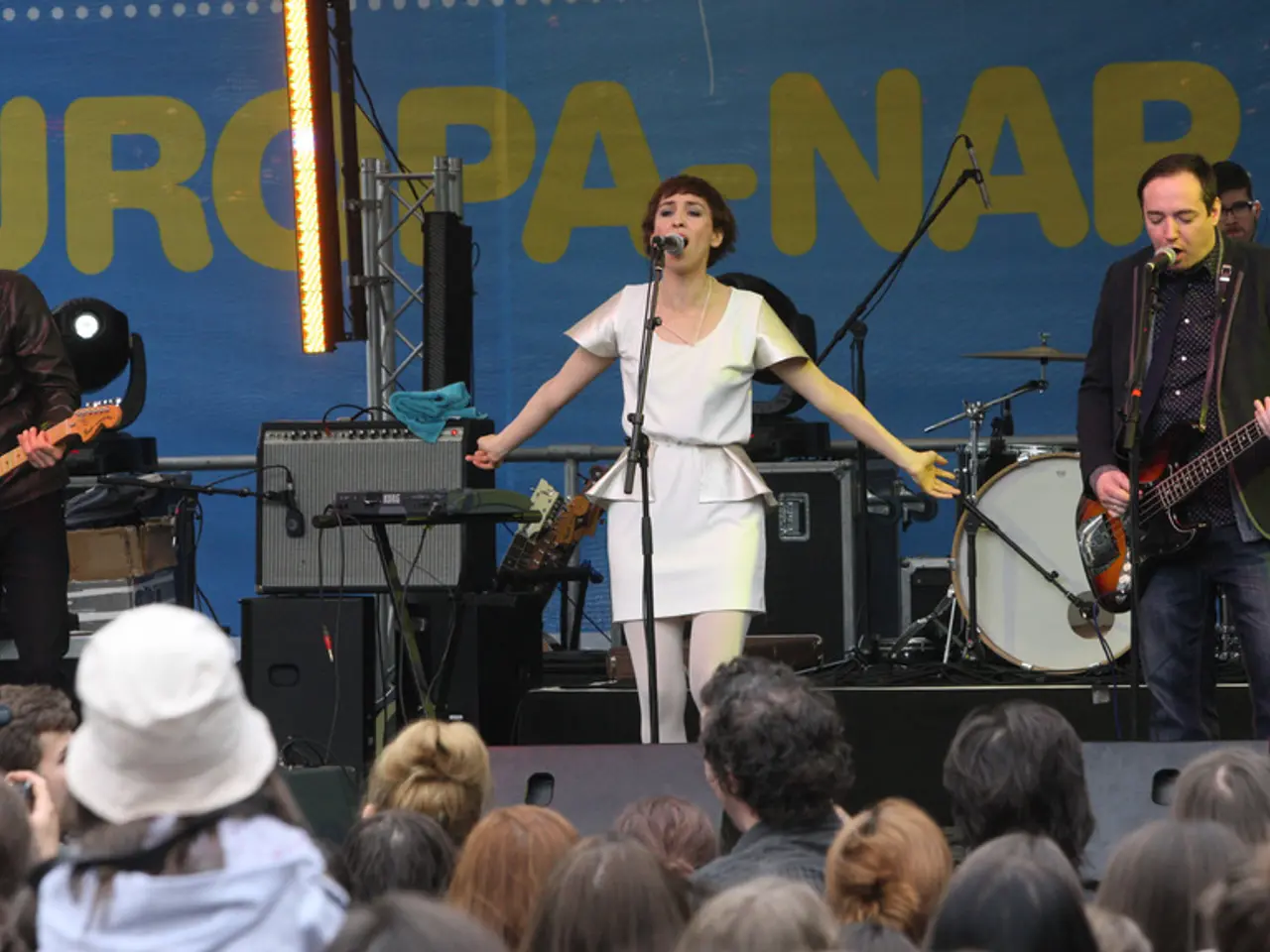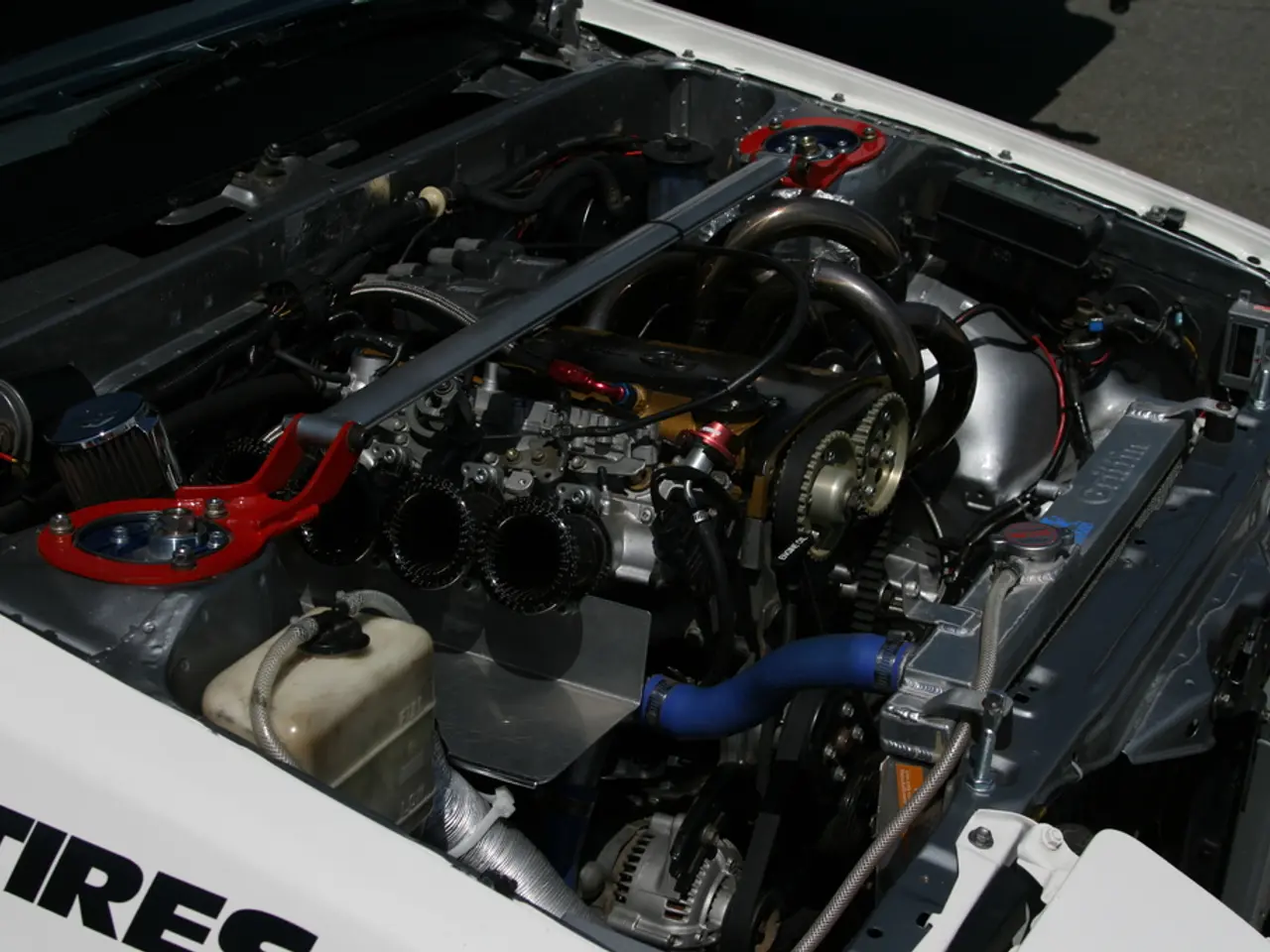Influence of Contemporary Cultural Shifts on Modern Music Creation Processes
In today's globalised world, music is constantly evolving, and cultural trends play a significant role in shaping its evolution. Producers have access to sounds and styles from across the globe, leading to the rise of genre-blending. This fusion of musical traditions is evident in the emergence of new genres like UK drill, K-pop, and hyperpop.
Music often mirrors what is happening in the world, with lyrics becoming more direct and expressive during periods of political unrest. Genres rise in popularity because they align with a certain identity or message, reflecting the cultural landscape. For instance, hip-hop has always been rooted in culture, with producers often responding to social and political realities.
Technological innovations, intertwined with cultural trends, reshape production techniques and musical styles. Earlier innovations such as electric guitars and synthesizers transformed the soundscape of the 20th century, while today's emergence of AI in music production is challenging traditional notions of creativity, enabling new experimental sounds. Streaming and data analytics also influence production by enabling targeted marketing and encouraging cross-genre collaborations.
Digital platforms have made high-quality music education available to students around the world, helping level the playing field and increasing cultural diversity in sound, genre fusion, and production techniques. The increasing quality and accessibility of home studio technology has allowed more artists to create professional-level music without major label support.
Cultural events and movements often influence the messages artists want to share. Producers focus on highlighting emotion, identity, resistance, or personal reflection depending on the cultural landscape. Cultural shifts can lead to changes in the tone and feel of music, with producers adapting to new trends and expressing what is happening around them.
Streaming platforms and social apps have changed the way music is listened to. Tracks are becoming shorter, hooks appearing earlier, and producers structure songs with skip culture in mind. Trends influence not just the style of music, but the techniques used to create it, with a cultural preference for raw, lo-fi aesthetics leading to the embrace of tape hiss, distortion, and minimal editing.
The rise of creator-driven content and the decline of traditional gatekeepers has led to more DIY production, with producers embracing home studios, self-released music, and independent distribution. Platforms like TikTok, Instagram, and YouTube have created fast-moving cultural trends that can change how music is produced and shared. Community-driven learning is becoming more prevalent, with producers learning through online communities, peer feedback, and collaboration.
The success of K-pop reflects a combination of cultural pride, globalisation, and meticulous production values. The rise of TikTok has pushed producers to create sounds that work well in 15 to 30-second clips, changing how songs are arranged and delivered.
In summary, cultural trends drive music’s evolution by influencing the fusion of styles, audience demographics, distribution channels, and the adoption of new technologies. These trends are shaped by factors including technology, politics, fashion, social values, and global events. As we move forward, it will be interesting to see how these trends continue to shape the future of music production.
[1] "The Evolution of Music: How Cultural Trends Shape the Soundscape." The Guardian. 2020. [2] "The Impact of Social Media on Music Trends." Billboard. 2019. [3] "The Rise of Genre-Blending in Music." Forbes. 2021. [4] "AI in Music Production: Challenging Traditional Notions of Creativity." Wired. 2020.
['Fashion-and-beauty trends, such as the rise of minimalistic, lo-fi aesthetics, are influencing the raw, stripped-down sounds that producers are experimenting with in music.', 'The growth in popularity of K-pop mirrors the global appreciation for cultural diversity and the fusion of traditional musical styles with modern technology, as seen in the production values of this genre.']




